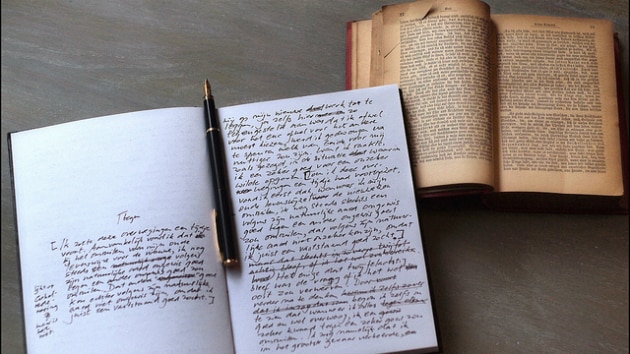Our Abilities | Literary Translation
Literary translation has been going on for thousands of years.
There are five volumes of the Oxford History of Literary Translation in
English, which testifies to the complexity and depth of this topic.
The variety of literary works being translated shows the
demand for different genres. While we cannot deny the importance of translating
literature, the process of translation is difficult and involves a different
process than regular content translation. It is one of the toughest among the
types of translation works.
Literary translation consists of the translation of poetry,
plays, literary books, literary texts, as well as songs, rhymes, literary
articles, fiction novels, novels, short stories, poems, etc.
An essential characteristic of every piece of writing, is
the style, the outcome of the writer´s personality and his emotions at the
moment; a single paragraph can´t be put together without revealing to some
degree the personality of the author. Every writer has a literary style and her
style is reflected in her writing. Some authors say that a translation should
reflect the style of the original text while others say that a translation
should possess the style of the translator.
An excellent translator must have a deep understanding of
the source and target languages, be able to identify with the author of the
book or poem, understand their culture and territory, and be proficient in
literary translation techniques.
A literary translator must take into account the beauty of the text, its style, the lexical, grammatical and phonological features. Some of these may not be the same in the target language. For example, in the Arabic language there is no “you,” which may be fundamental for a good translation. The aim of the translator is that the quality of the translation be the same as the original text without leaving out any of the content.
As a rule, in literary translation we translate messages, not meanings. The text must be seen as an integral and coherent piece of work.
Many literary translators have come and gone. The works of
6th century Roman philosopher, consul and senator Anicius Manlius Severinus
Boëthius, or just Boethius, was translated by Geoffrey Chaucer and King Alfred
the Great. Throughout the years, the Holy Bible is the most translated work.
Among the classics, The Little Prince (French) is the most translated, followed
by Pinocchio (Italian), Dao De Jing (Chinese), Pilgrim’s Progress (English) and
Alice in Wonderland (English). Among the modern works, some of the most
translated are Harry Potter (English), Sleep Tight, Little Wolf (German), Seven
Brief Lessons on Physics (Italian), Before I Go to Sleep (English) and The Book
of Mirrors (English).
Examples:
1) The Story of An Hour by Kate Chopin
|
Knowing that Mrs. Mallard was afflicted with a heart
trouble, great care was taken to break to her as gently as possible the news
of her husband's death. It was her sister Josephine who told her, in broken
sentences; veiled hints that revealed in half concealing. Her husband's
friend Richards was there, too, near her. It was he who had been in the
newspaper office when intelligence of the railroad disaster was received, with
Brently Mallard's name leading the list of "killed." He had only
taken the time to assure himself of its truth by a second telegram, and had
hastened to forestall any less careful, less tender friend in bearing the sad
message. |
Sabiendo
que la Sra. Mallard sufría de un problema cardíaco, se tuvo mucho cuidado en
comunicarle con la mayor delicadeza posible la noticia de la muerte de su
marido. Fue su
hermana Josephine quien se lo dijo, con frases entrecortadas e insinuaciones
veladas que lo revelaban y ocultaban a medias. El amigo de su marido,
Richards, también estaba allí, cerca de ella. Fue él quien se encontraba en
la oficina del periódico cuando recibieron la noticia del accidente
ferroviario y el nombre de Brently Mallard encabezaba la lista de «muertos».
Tan sólo se había tomado el tiempo necesario para asegurarse, mediante un
segundo telegrama, de que era verdad, y se había precipitado a impedir que
cualquier otro amigo, menos prudente y considerado, diera la triste noticia. |
2) Dreams by Langston Hughes
|
Hold fast to dreams |
Aferrarse a los sueños |
|
For if dreams die |
Porque si
los sueños mueren |
|
Life is a broken-winged bird |
La vida es
un pájaro con las alas rotas |
|
That cannot fly. |
Incapaz de volar |
|
Hold fast to dreams |
Aferrarse a los sueños |
|
For when dreams go |
Porque cuando
los sueños se van |
|
Life is a barren field |
La vida es
un campo estéril |
|
Frozen with snow. |
Congelada con nieve. |
3) A very old man with enormous wings by Gabriel García Márquez
|
Su prudencia cayó en corazones
estériles. La noticia del ángel cautivo se divulgó con tanta rapidez, que al
cabo de pocas horas había en el patio un alboroto de mercado, y tuvieron que
llevar la tropa con bayonetas para espantar el tumulto que ya estaba a punto
de tumbar la casa. Elisenda, con el espinazo torcido de tanto barrer basura
de feria, tuvo entonces la buena idea de tapiar el patio y cobrar cinco
centavos por la entrada para ver al ángel. |
His prudence
fell on sterile hearts. The news of the captive angel spread with such
rapidity that after a few hours the courtyard had the bustle of a marketplace
and they had to call in troops with fixed bayonets to disperse the mob that
was about to knock the house down. Elisenda, her spine all twisted from
sweeping up so much marketplace trash, then got the idea of fencing in the yard
and charging five cents admission to see the angel. |
Translate the language, translate their culture.


Comentarios
Publicar un comentario